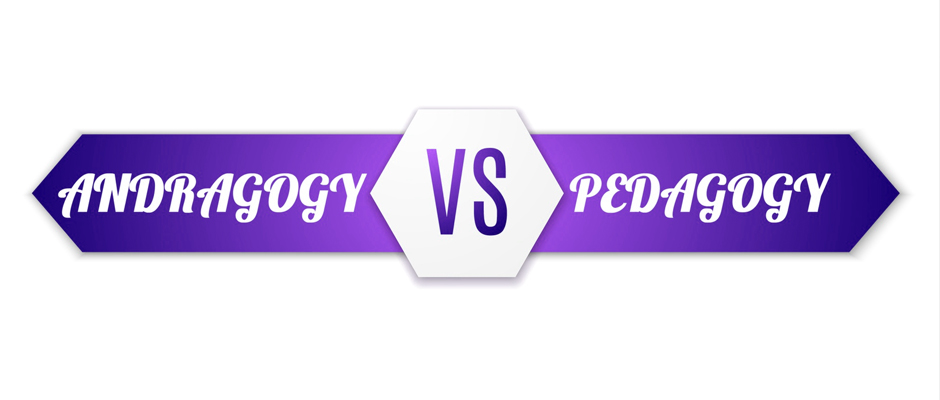A Case Against Andragogy?
In my studies, I came across an interesting journal entry. “Pedagogy vs. Andragogy: A False Dichotomy?” is a fantastic journal entry that is well-balanced and covers a variety of critiques of andragogy from various researchers (Holmes & Abington-Cooper, 2000). Two of the more compelling critiques shared were from Cheryl J. Polson and John R. Rachel. For example, Holmes and Abington-Cooper shared that Polson effectively demonstrated no agreement about what constitutes an “adult learner” and that the andragogy-pedagogy classification is not perfect (Holmes & Abington-Cooper, 2000). They also shared how John R. Rachel didn’t feel that the two approaches were mutually exclusive and that both approaches would necessarily share various ideas and strategies (Holmes & Abington-Cooper, 2000).
My critique of the article is that Holmes and Abington-Cooper decided to share Popie M. Mohring’s distracting commentary on nomenclature. Mohring took particular issue with the term Andragogy because the word is derived from the word “aner.” Mohring reportedly stated that both andragogy and pedagogy are etymologically inaccurate and then proposed the term teliagogy to replace andragogy to avoid sexist words that, in her opinion, somehow exclude women (Holmes & Abington-Cooper, 2000).
I will touch on that in a moment, but before I do, I want to say that the article demonstrates some valid positions (both for and against), as well as some confusion regarding andragogy. Ultimately, I believe that Holmes and Abington-Cooper (2000) were correct when they concluded that “andragogy is simply another model of assumptions about learners to be used alongside the pedagogical model of assumptions, thereby providing two alternative models for testing out the assumption as to their ‘fit’ with particular situations.” The fact remains that different people learn in different ways, and each model provides insights and tools that can be utilized in a variety of ways and in various settings.
My Point in Writing This
If we allow political bias and temporary trends to infect our research, we risk detracting from meaningful solutions or ideas. For example, Mohring incorrectly concludes that the term andragogy excludes women. I can find no evidence to suggest that female adult learners have been excluded from education due to this term.
Similarly, I believe that Mohring incorrectly concludes that “aner” (or andr- or ἀνήρ) simply means “adult male.” Like many words, ” aner ” means several things depending on the context in which the term is used. Specifically, definitions of “aner” include things like “male insect” (Aner, 2011) or “boy” (Aner, 2001). Neither of these specifically represents andragogy, and I can find nothing in my research to demonstrate resistance to the term based on these alternate definitions.
The truth is that while “aner” can and often does mean “male,” it can also mean “man” – as in a human being or person, and in this context, it is intended to demonstrate maturity rather than gender (Mounce, 2001). Aside from listening to Greek language scholars, further evidence of this can be found in other aner-rooted words such as Android, which defines a robot with a human appearance (Android, 2019).
Now, I am all about clarification, but I share this because debates in nomenclate should not allow us to lose focus. Based on what I have researched, the term andragogy was not meant to be sexist and has not been used to exclude anyone but children. It is my opinion that Mohring provides nothing short of baseless distraction for political, personal, or ignorant reasons. When it comes to andragogy, I believe we must examine through the eyes of Knowles and keep with the spirit of what is being said or sought. Otherwise, we will quickly get lost or misdirected and find ourselves in the weeds of nowhere.
If we replace andragogy with anything, then it should be with something better in content instead of in name alone. An example of this might be in heutagogy, which is said to be an extension of andragogy and a blend of constructivism and self-directed learning. It’s a solid approach that works well for many serious adult learners. So let’s stop the nonsense. Let’s advance theories and understanding, not debate nomenclature.
You might also be interested in my article titled: Andragogy Research and the Unexpected Connection
Resources:
Android. (2019). In Oxford Online Dictionary. Retrieved from https://en.oxforddictionaries.com/definition/android
Aner. (2011). In Merriam-Webster.com. Retrieved from https://www.merriam-webster.com/dictionary/aner
Aner. (2001). In Encyclopedia Mythica. Retrieved from https://pantheon.org/articles/a/aner.html
Holmes, G., & Abington-Cooper, M. (2000). Pedagogy vs. Andragogy: A False Dichotomy? The Journal of Technology Studies, 26(2). doi: 10.21061/jots.v26i2.a.8
Mounce, W. D. (2001, March 16). ἀνήρ. Retrieved from https://www.billmounce.com/greek-dictionary/aner




